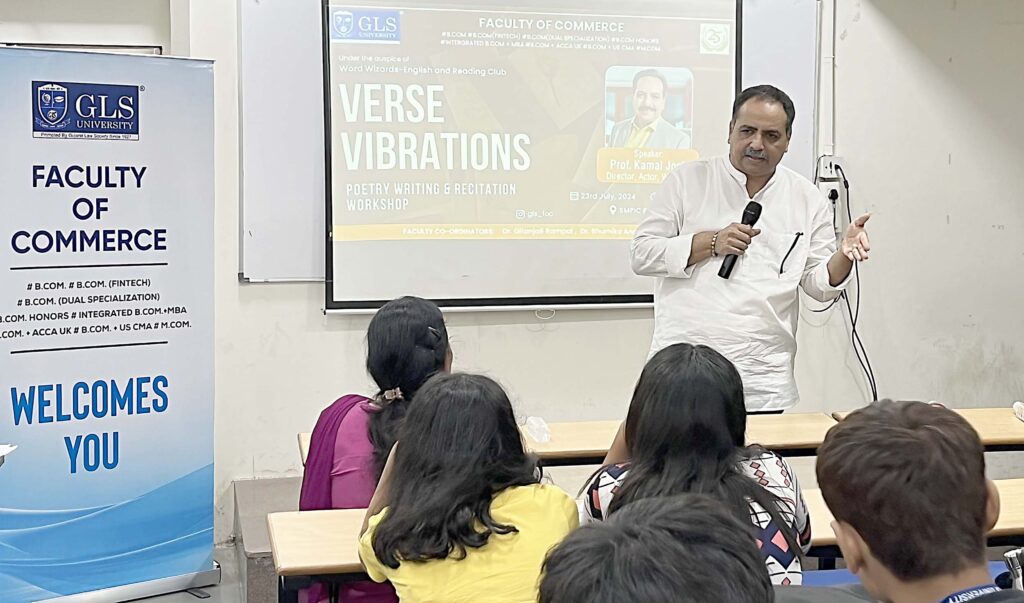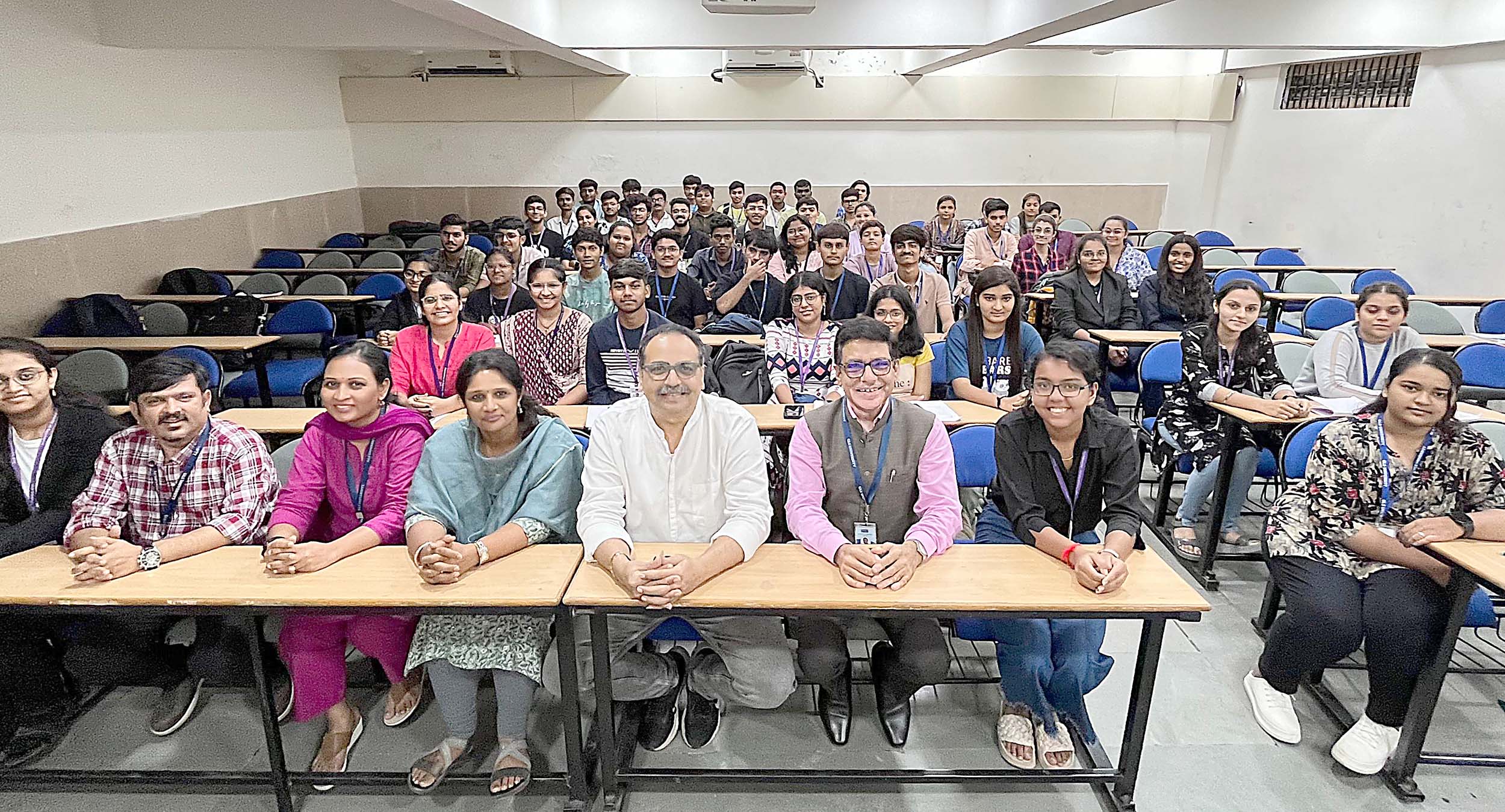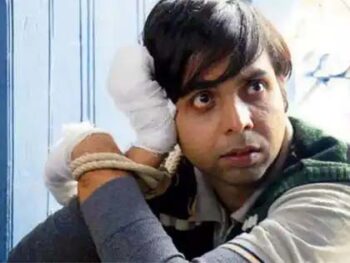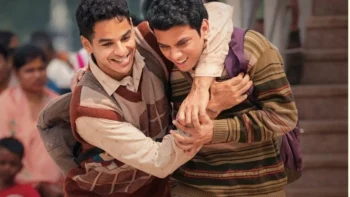Verse Vibrations- Poetry Writing and Recitation workshop @GLS-FOC

“Words are never communicated, those are the feelings which are communicated”- Prof. Kamal Joshi
Ahmedabad, GLS University’s Faculty Of Commerce under the auspice of ‘Word Wizards’- the English and Reading Club organized “Verse Vibrations :Poetry Writing and Recitation Workshop” with Prof. Kamal Joshi, a versatile Director, Actor and Writer.
During the introductory phase of the session, Prof. Joshi defined the essence of poetry to his students. He emphasized that a poem is a concise yet powerful narrative, encapsulating an entire story in a creative and succinct manner, it is much like a compact capsule of the story. He added that through carefully structured words, a poet crafts visual images that resonate in the minds of listeners, allowing them to deeply connect with the emotions and sentiments embedded within.

Continuing further, Prof. Joshi delved into the technical intricacies of various poetic forms such as ghazal, sonnet, nazm, geet, and many more. Each form, he elucidated, carries its own structured framework and rules, influencing how poets express their thoughts and feelings. From the lyrical and melodic cadence of ghazals to the structured rhyme schemes of sonnets, each form offers poets a unique canvas to articulate their creativity.
In the workshop, the expert not only recited a chapter from Rashmirathi, a work deeply rooted in the Mahabharata, but also illuminated its profound poetic power. Through his recitation, he vividly brought to life the complexities and emotions of the poem, showcasing its remarkable ability to evoke vivid mental imagery and convey the warmth of the same. By immersing his audience in the poetic realm of Rashmirathi, Mr. Joshi exemplified how poetry transcends mere words to capture the essence of human experience and cultural heritage, enriching understanding and appreciating the literary artistry.
According to him, when you hold a poem and read it repeatedly, it will subtly guide you on its own rhythm and the manner in which it should be recited. In order to refrain the efforts from going in vain, one should choose those poems that echo the stories that they already hold dear as familiarity eases the expression of one’s deepest emotions and thoughts noting that they understand the meaning of the text first.
Every poem has its own rhythm and to acquaint students to various rhythms, he made them practice taals and different forms of poetries. He advised them to recite Sanskrit shlokas for they would not only help them grow spiritually but also boost their confidence along with making their voice effective, enhancing its clarity, increasing concentration power and helping them learn a natural rhythm. Further he added that one should restrict the hand movements while presenting the poem on a formal platform however they should practice hand expressions to get into the flow of the poem.
Concluding the interactive workshop on an insightful note he made students understand the different “Rasas” and “Bhaavas” and how they give more than half the understanding of the poetry. He explained the thin line of difference which separates complicated rasas and bhaavas.
The workshop was successfully managed by the Student Organising Committee under the guidance of Dr. Bhumika Ansodaria and Dr. Gitanjali Rampal.




